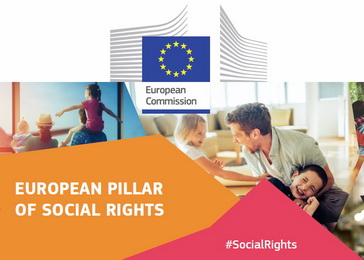 The European Pillar of Social Rights has grown out of infancy – on 17 November 2019, it will be two years that this compass towards better working and living conditions was proclaimed by EU institutions and leaders in Gothenburg, Sweden.
The European Pillar of Social Rights has grown out of infancy – on 17 November 2019, it will be two years that this compass towards better working and living conditions was proclaimed by EU institutions and leaders in Gothenburg, Sweden.
Like any two-year old, the Pillar is finding its voice – step by step, Europe is becoming more social. This process started by the Juncker Commission is bound to continue: The European Pillar of Social Rights will continue to be the basis for future EU initiatives.
Delivering on the Pillar is a shared political commitment and responsibility. This was reiterated by EU Heads of State and Government in their New Strategic Agenda 2019-2024, which called upon both the EU and Member States to implement the Pillar with due regard to their respective competences.
Commission President-elect Ursula von der Leyen committed in her political guidelines to putting forward an action plan to fully implement the Pillar as part of the broader initiatives for an economy that works for the people.Since 2017, the European Commission has taken concrete initiatives to put the 20 rights and principles to support fair and well-functioning labour markets into practice at European level. 25 key initiatives proposed by the Juncker Commission in the social field have by now been agreed upon.
Here are some examples:
- New EU rules on work-life balance will help working parents and carers to combine their family lives and their professional careers on the basis of equal opportunities for men and women.
- New EU rules on transparent and predictable working conditions increase protection for the most precarious workers in the new world of work.
- With a new Council Recommendation, Member States commit to ensure that as many people as possible, including the self-employed, have access to social protection and the possibility to build up rights against contributions.
- The European Labour Authority will make sure that the existing rules on the mobility of workers are enforced in a fair, simple and effective way.
The Pillar is now firmly anchored in the European Semester. In 2019, almost half of the country-specific recommendations addressed employment, education and social issues, putting a renewed emphasis on the three areas of the Pillar:
- equal opportunities and access to the labour market,
- fair working conditions,
- social protection and inclusion.
The Social Scoreboard is used as a ‘screening device’ that allows for a wider and careful assessment of the situation in each Member State.
The future European Social Fund Plus (ESF+) will help Member States develop skills, employment and social actions in line with the European Pillar of Social Rights.
Source: ec.europa.eu
 Government of the Republic of Serbia
Government of the Republic of Serbia















 pdf [271 KB]
pdf [271 KB]
Leave a Comment